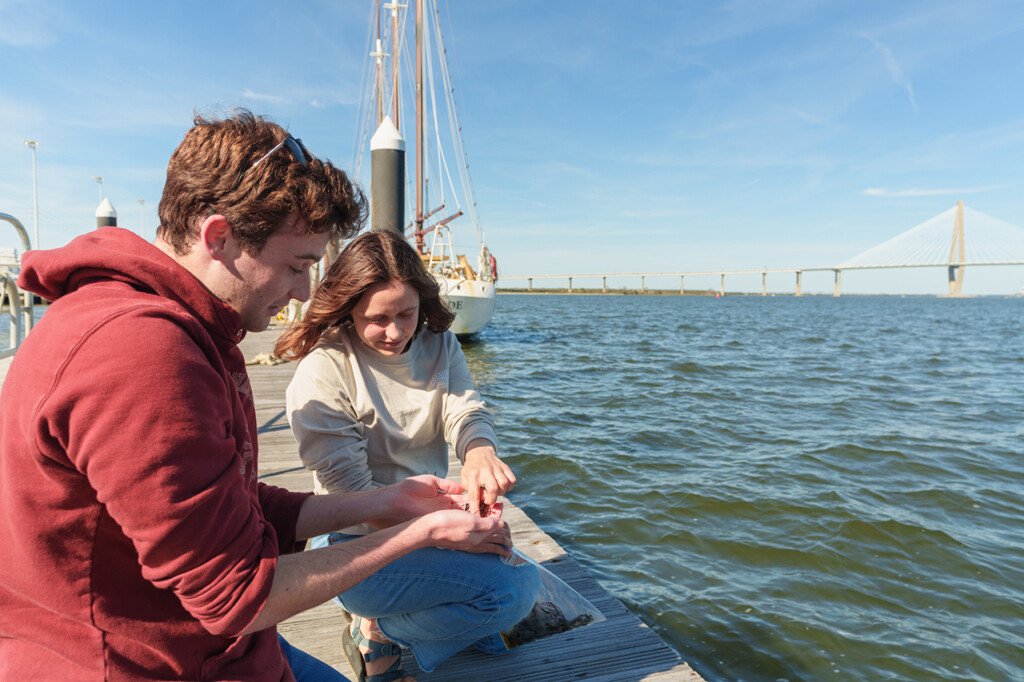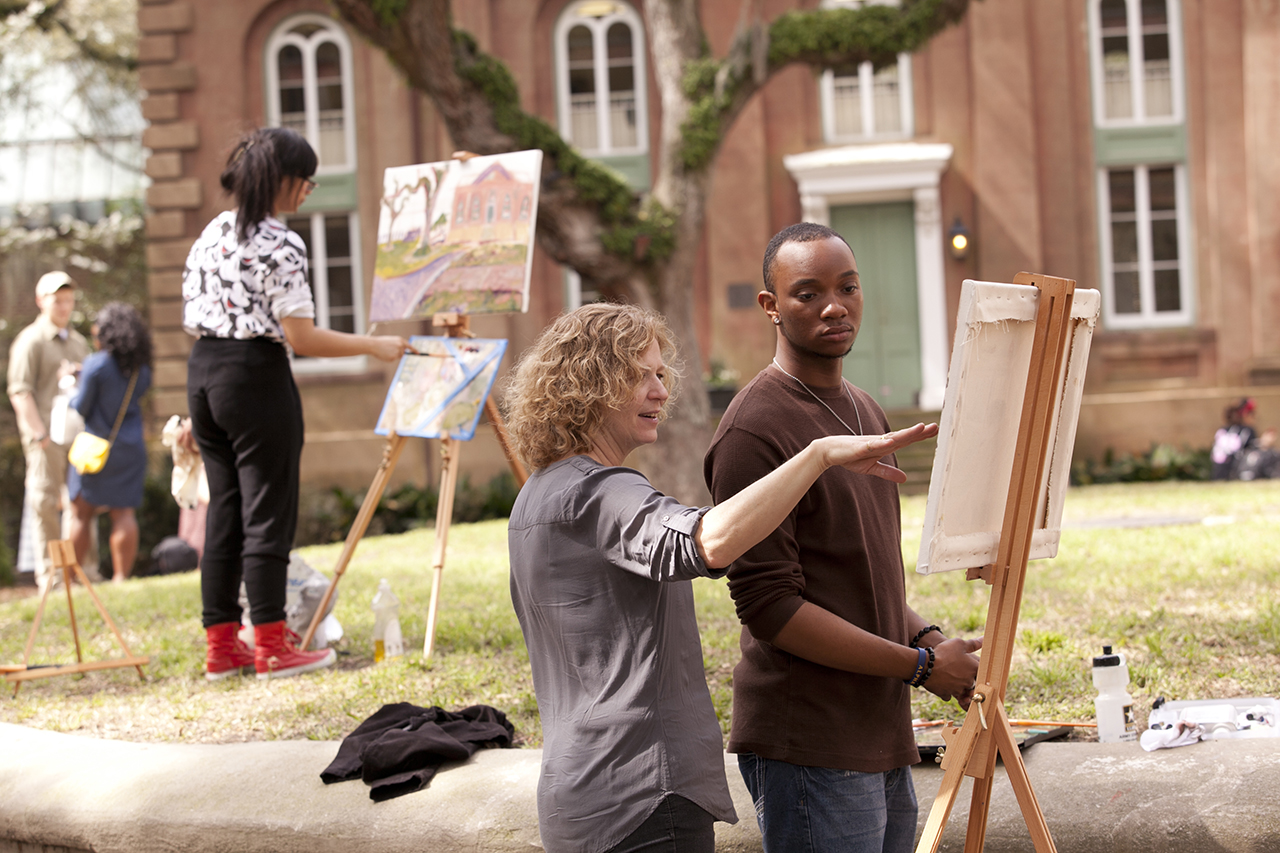College of Charleston Students Explore Interests With Meta-Majors
The College of Charleston has introduced meta-majors – areas of interest that pull together majors from various schools that have related courses and career goals – for incoming students to explore different majors in an intentional and guided way.

Photos by Mike Ledford
College is a time of metamorphosis – a time of growth, of self-discovery and of figuring out who we want to be and where we want to go moving forward. And, while this phase can have a major impact on students’ paths forward, it should give them a sense of freedom and exploration rather than feel like they are locked in.

That is why the College of Charleston has introduced meta-majors – areas of interest that pull together majors from various schools that have related courses and career goals – for students to explore different majors in an intentional and guided way.
“Choosing a major can be one of the most exciting and daunting decisions for college-bound students and their parents,” says Christopher Korey, associate provost for student success, explaining that meta-majors make that easier by providing a guided pathway that will serve as a framework for their studies. “The College uses meta-majors to give students the opportunity to explore various topics, connect with like-minded students and find the support and community they need to be even more confident that they’re choosing the right major for them.”
Incoming students are placed into one of the six meta-majors based on their major of interest at the time the registered for orientation. At orientation, they are introduced to faculty in these programs and begin to meet their fellow students who are interested in the same areas.

Students will be enrolled in several key courses that support the general area of interest, and through the first year, schools, departments/programs and student success offices will sponsor a variety of engagements – academic open houses, alumni panels and other activities outside the classroom – to further connect students to campus and help them make an informed choice about their major.
“The idea is to prepare our student to achieve their current and future personal, academic and professional goals from Day One,” Korey adds.
The majors in each meta-major were identified through common curricular elements, according to the number of students who double major in particular areas, and by mapping how students move between majors once they have declared. The meta-majors include:
- Arts, Humanities and Social Sciences: Students will leverage their creativity and critical thinking skills to gain valuable insights into the complex social issues of yesterday, today and tomorrow. Majors in this area are applicable in a vast range of professions, including but not limited to the performing arts, education, law, public relations, advertising, content creation, government, nonprofits, and entrepreneurship.
- Business: Students gain a foundational knowledge in business principles while developing critical skills to make an impact in the real world. Business majors thrive in diverse career paths, from corporate sectors to entrepreneurial ventures, and even nonprofits or government roles.
- Education: Students will learn how to make complex ideas easy to understand while gaining the skills needed to help students grow as learners and as individuals. Our education majors are well-prepared to lead in the classroom and in a variety of careers beyond teaching, including roles in training and development, educational policy, administration, counseling and more.
- Human Health and Behavior: This meta-major is for students committed to helping people lead healthier lives through clinical work, research, community outreach or policy. These skills prepare health sciences majors for diverse career paths beyond direct patient care, including roles in healthcare administration, public health, research, pharmaceuticals and health education, highlighting the broad applicability and value of their degree.
- Science, Technology, Engineering and the Environment: This meta-major helps students develop skills that will help them solve problems and make new discoveries in a diverse array of science-based careers. Majors in science, technology, engineering and the environment create highly versatile, opening career opportunities not just in traditional fields like engineering and lab research, but also in areas like project management, policy, environmental science and more.
- Exploratory: The exploratory meta-major is a guided pathway designed for students who are unsure about their intended major or career direction when they enter college. It’s a flexible and supportive framework that allows students to explore all areas in the context of our meta-majors, before committing to a specific major. Regardless of the major they choose, our liberal arts and sciences graduates are versatile and competitive candidates for a wide range of careers, including but not limited to business, education, government, nonprofits, research and creative industries.
Students can declare their majors as soon as orientation and as late as their third semester on campus, but they will still be in their meta-major through the end of their first year, regardless. This gives them the opportunity to learn more through programming in their areas of interest.
“It supports our students’ success by giving them advising support, clear degree maps and early connections with the Career Center and the departments, faculty and staff in their areas,” says Korey.



